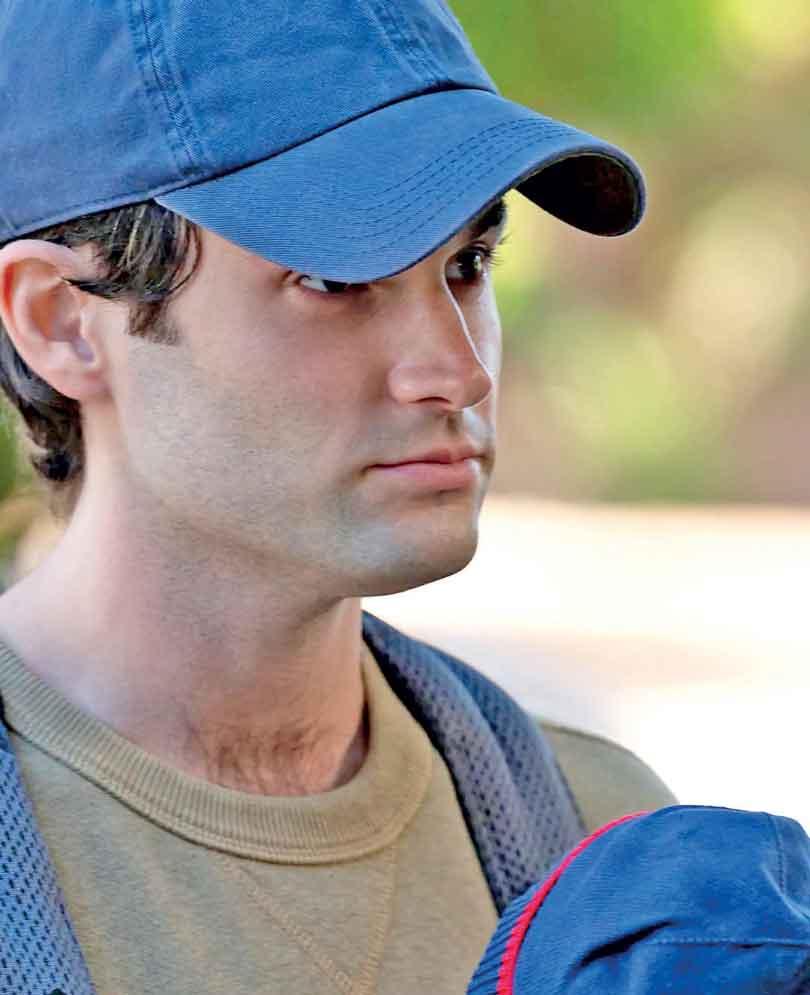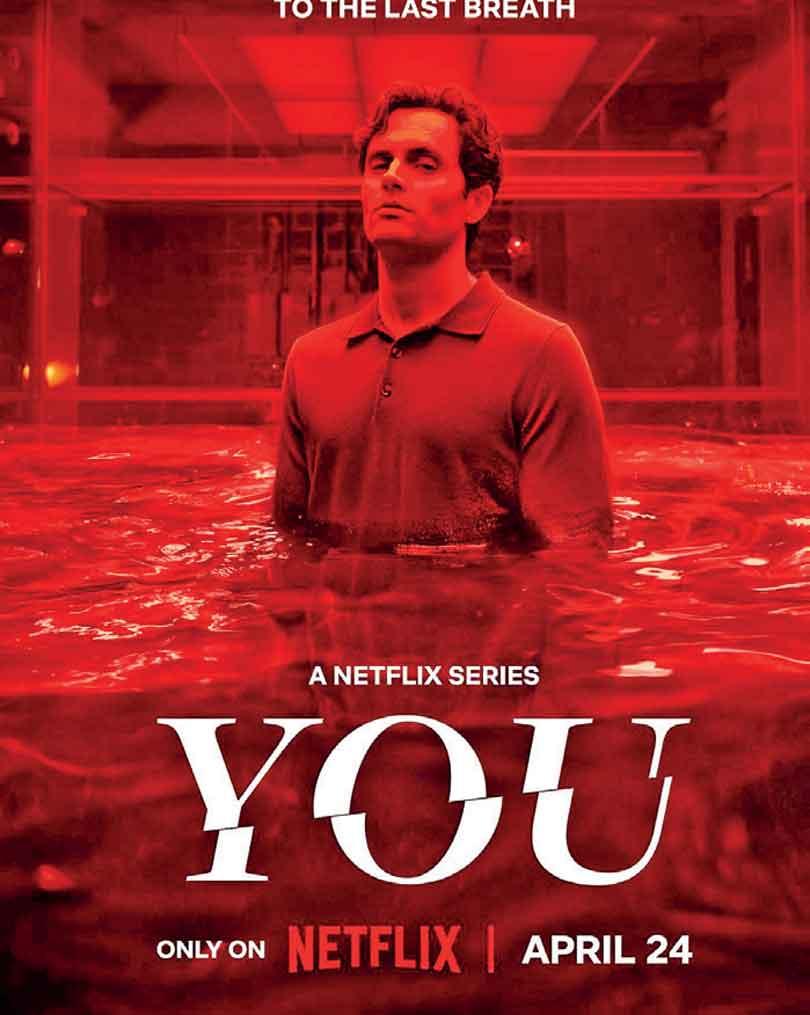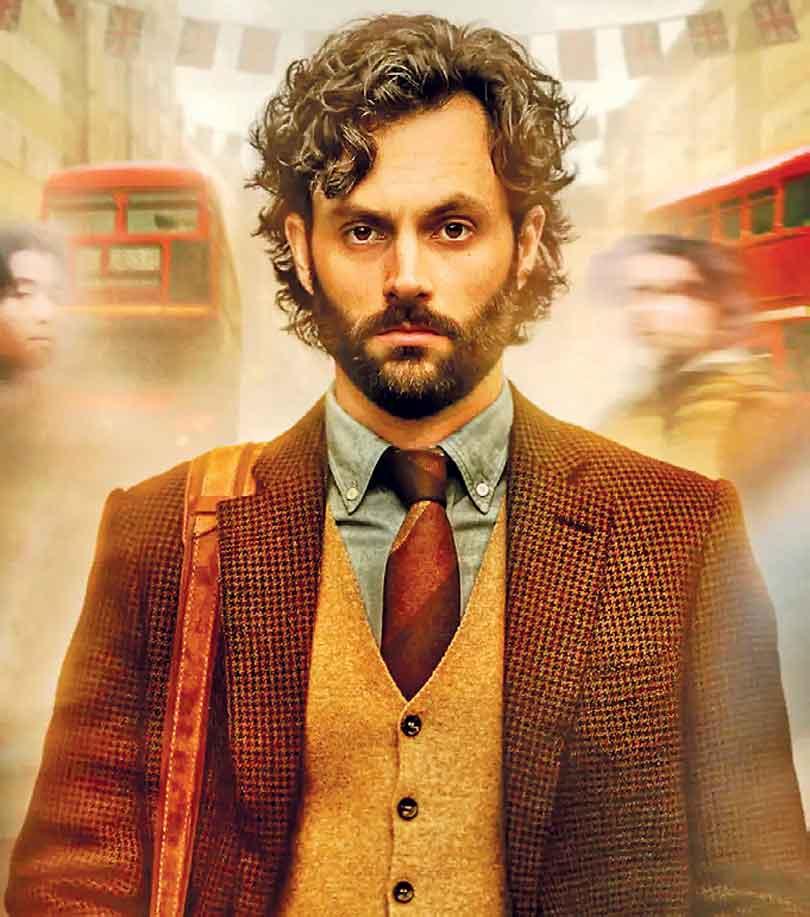



After five seasons of obsession, bloodshed, and twisted romance, Netflix’s ‘You’ draws to a chilling close. Joe Goldberg (Penn Badgley), the charming bibliophile turned serial killer, ends his story not with redemption, but with a full embrace of the darkness he’s been dancing around since Season One.
The finale doesn’t just conclude a story, it completes a character study in the making of a modern monster, deeply rooted in unresolved childhood trauma and fuelled by the invisible engine of toxic masculinity. From the beginning, Joe believed he was the hero of his own love story. His justifications for stalking, killing, and manipulating were always cloaked in the language of protection, passion, and justice. But as the series finale shows, the greatest lie Joe ever told was to himself. And perhaps the most terrifying part? His story isn’t entirely fiction.
Joe Goldberg is the product of an all-too-familiar pattern: early exposure to violence, abandonment, and neglect. The series consistently peels back layers of his childhood trauma, an abusive father, a mother who failed to protect him, and a youth spent bouncing between institutions that prioritized order over healing. These experiences didn’t excuse his actions, but they offer context. The child who was taught that love equals pain became the man who inflicted pain in the name of love.
The finale cleverly juxtaposes Joe’s return to New York, the place where it all began, with a new public persona: one that’s polished, philanthropic, and adored. But beneath the surface, he’s unchanged. He’s merely swapped his bookstore cap for a billionaire's suit, yet the pathology remains. The show leaves us with a haunting image: evil doesn’t always hide in shadows. Sometimes it smiles on talk shows, runs charities, and looks like the guy next door. This final act raises crucial questions about accountability and identity, especially through the lens of toxic masculinity. Joe’s narrative is one we recognize: the ‘nice guy’ who believes he deserves affection, control, and loyalty in return for his attention. When women deviate from the script, he punishes them. When men challenge him, he eliminates them. The structure of ‘You’ masterfully critiques this entitlement. Joe isn’t an outlier; he’s a mirror held up to a culture that romanticizes persistence over consent and confusion over clarity.
Serial killers in pop culture often fall into caricature: the twisted genius, the masked stalker, the loner with a vendetta. ‘You’ dares to show something far more unsettling, a killer who is ordinary, articulate, and even likable. This realism forces viewers to confront how easily violence hides in plain sight. Joe doesn’t exist in a vacuum; he’s born from systems that fail to support trauma survivors, challenge gendered norms, or hold men accountable for their harm.
In its closing moments, ‘You’ resists a neat moral conclusion; Joe faces consequences, yet ultimately escapes unscathed. The series concludes with Joe imprisoned, yet still lacking remorse. He rationalizes his actions as a product of circumstance, suggesting societal blame. In his final monologue, he muses, “Maybe we have a problem as a society. Maybe we should fix what’s broken in us. Maybe the problem isn’t me. Maybe it’s you.” This ending underscores the show's themes of manipulation and denial, leaving viewers with a haunting reflection on accountability and the dangers of romanticizing such a character.
This isn’t a cop-out; it’s a provocation. We’re meant to be uncomfortable. In a media landscape often eager to redeem male anti-heroes, ‘You’ dares to let Joe stay bad. It resists the urge to humanize him in ways that excuse his actions, even as it explains how he came to be. That balance is rare, and it’s what gives the show its sharpest edge. Ultimately, ‘You’ isn’t just a thriller; it’s a cultural critique. It exposes the mythology we build around love, masculinity, and trauma, and asks us what happens when those myths go unchecked. The answer, as Joe Goldberg shows us, is horrifying.











